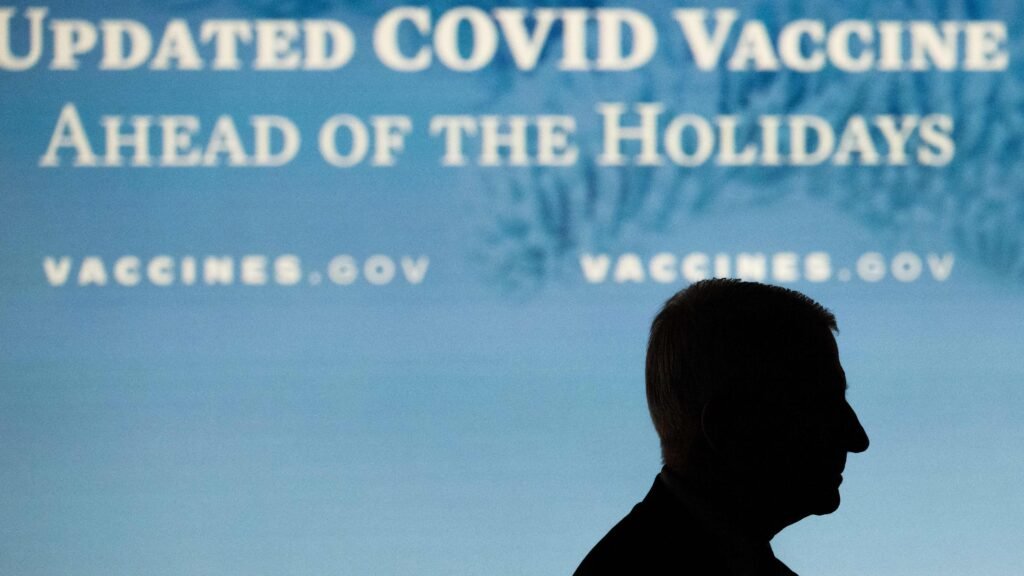The second lesson is the need for humility and transparency in public health decision-making. Throughout the pandemic, both parties displayed a lack of humility in their pronouncements, often presenting their policy choices as unquestionable truths rather than evolving strategies based on imperfect evidence. The public health community, including scientists like Dr. Fauci, must acknowledge the uncertainties and limitations of their knowledge and expertise. Transparency in decision-making is essential to build trust with the public and policymakers.
As we move forward, a more nuanced understanding of the role of science in policy-making is crucial. Scientists should provide evidence-based recommendations while recognizing the inherent uncertainties and complexities of public health. Policymakers must weigh scientific evidence alongside other considerations such as economic impact, individual freedoms, and societal values.
The Fauci test has revealed the deep divisions in our society and the politicization of public health. Moving beyond this binary thinking requires a recognition of the nuances and complexities of public health decision-making. By embracing humility, transparency, and a willingness to engage in dialogue, we can work towards a more unified approach to public health policy that prioritizes the well-being of all Americans.
As we look towards the future, let us remember the lessons of the pandemic and strive to build a more inclusive and collaborative approach to public health. By working together, we can overcome the challenges ahead and create a healthier and more resilient society for all.
The COVID-19 pandemic has been a stark reminder of the intersection between public health and politics. While public health experts and practitioners strive to base their recommendations on evidence and data, the translation of their specialized knowledge into policy is inherently political. This means that values and political trade-offs are inevitably part of the decision-making process.
The pandemic has highlighted the moral quandary of weighing health priorities against other societal considerations. Calls for measures such as lockdowns, universal masking, testing, and vaccine mandates prioritize public health as a top value. On the other hand, opposition to these measures often emphasizes individual freedoms, mitigation of broader societal harm, and other opportunity costs. Public health specialists, while dedicated to promoting health and well-being, are not immune to the ideologies and value systems of society.
One controversial example of the politicization of public health during the pandemic was the Great Barrington Declaration of October 2020. Authored by three prominent researchers and signed by thousands of scientists and medical practitioners, the declaration advocated for a different approach to managing the pandemic. The ensuing debate and backlash underscored how scientific discussions can quickly become politicized.
As the pandemic continues to evolve, scientists and policymakers are faced with new challenges and decisions. The confirmation of key health officials, for example, has become a battleground for competing ideologies and agendas. The need for a more nuanced and inclusive approach to public health policy has never been more apparent.
Looking back on the pandemic response, it is clear that the U.S. faced significant challenges in managing the crisis. Despite being ranked first in pandemic preparedness in 2019, the country experienced one of the highest COVID-19 mortality rates in the world. This stark contrast highlights the need for a more cohesive and bipartisan approach to public health.
Moving forward, policymakers must recognize the inherent political nature of public health and work towards a more collaborative and evidence-based decision-making process. By acknowledging the complexities of public health policy and embracing a more inclusive approach, positive societal outcomes can be achieved. Ultimately, the goal should be to learn from past mistakes and build a stronger, more resilient public health system that can effectively respond to future challenges. The American people would be the prime beneficiaries of implementing new healthcare policies that prioritize public health and well-being. As the Vice President for Science and Strategy at the COVID Collaborative, Steven Phillips, M.D., M.P.H., emphasizes the importance of focusing on the needs of the population to drive positive change.
One key aspect of these new policies is ensuring access to affordable and quality healthcare for all Americans. By expanding coverage and reducing out-of-pocket costs, individuals and families can receive the care they need without facing financial barriers. This not only improves health outcomes but also reduces the burden on the healthcare system as a whole.
Additionally, investing in preventive care and public health initiatives can help to address underlying health issues before they escalate into more serious conditions. By promoting healthy behaviors, providing screenings and vaccinations, and addressing social determinants of health, we can reduce the prevalence of chronic diseases and improve overall well-being.
Furthermore, by prioritizing research and innovation in healthcare, we can drive advancements in medical treatments and technologies. This includes funding for medical research, supporting the development of new therapies, and ensuring access to cutting-edge treatments for all Americans. By staying at the forefront of medical science, we can improve outcomes for patients and save lives.
Overall, the American people stand to benefit greatly from a healthcare system that prioritizes their needs and well-being. By focusing on access, prevention, and innovation, we can create a healthier and more equitable society for all. Steven Phillips’ advocacy for these changes underscores the importance of putting people first in healthcare policy decisions.


